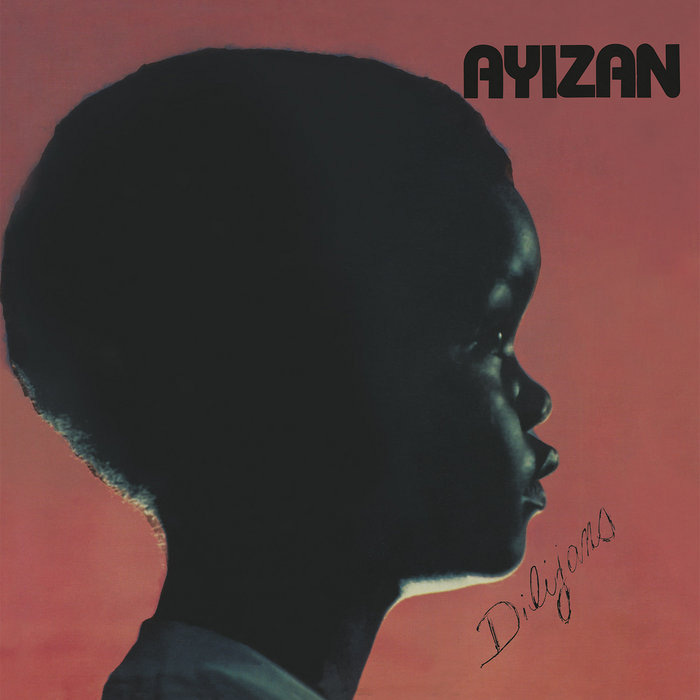Genre of the Day - Rara 🇭🇹
Album of the Day - Dilijans by Ayizan (1984)
May 23, 2024
There is an unforgettable video of the American singer Miley Cyrus, Billy Joeling at the piano playing the tune “Sparkle Song”, asking a simple question. What does it mean? What does it mean?, punctuating her demand with a mangled scream. This aptly contextualizes how I feel about getting two Carnival tradition-related albums that synthesize traditional stylings with jazz overtones to pay homage to a country’s cultural history, two days in a row. I have no idea what tone this universal message that has come my way carries. We aren’t remotely near the Carnival season! Whatever it may be, perhaps it’s good luck—I send that on to you, my dear reader.
Today’s album flings us from the Southern Cone to the northern edge of the Latin American sphere to the country of Haiti, making its first genre appearance and chance to shine relative to its musically prolific neighbor Cuba in this column. This carves me out a nice opportunity to rag on the French rather than the Spanish for once. France basically kneecapped the country of Haiti economically for centuries and triggered a cycle of impoverishment after Haitians successfully overthrew the French slaveowners and established the first modern Black republic.
Nonetheless, Haiti has persisted in its cultural strength. Haiti is often identified with the religion of Vodou, a syncretic faith combining a dizzying range of influences from West and Central African traditional spiritualities, Catholicism, and even Freemasonry (or, as this article argues, Freemasonry took some African cosmological and visual influence). As integral as Vodou has been in Haitian social culture, the widespread fascination around Vodou (the word zombie comes from it!) often ignores that its African influences came with musical strings—or drums, for this matter—attached. This is largely reflected in the genre of Haitian Vodou drumming, which involves the polyrhythms associated with western Africa in a ritualized manner that melds itself to key components of various religious ceremonies.
Rara is one branch of Haitian Vodou drumming, connected to the festival of Carnival. It seems Carnival is so fun, it persisted as a tradition with Haitian syncretism rather than dying out after French Catholicism was given the Toussaint boot—it’s a shame most non-Louisianian American states don’t have those deep Catholic roots. Instead, we get St. Patrick’s Day, and I fear we must confront that it doesn’t compare—we only greenify one major American river in celebration. Unlike yesterday’s murga, though, rara is actually technically a separate phenomenon from Carnival, speaking to Haiti’s preponderance of uniquely insular traditions. While the season of rara performances does overlap with Carnival, it also has a deeper significance in Vodou, one that involves requesting the presence of ancestral spirits to energize the playing and ultimately saluting the dead directly through music. The genre employs the most portable drums that make up Haitian Vodou ensembles in the form of manman, kata, and bas, as well a group of bamboo and metal horns (vaksins and konès, respectively) and various other percussion instruments to drive a multilayered rhythm.
Today’s genre is, like yesterday’s, yet another foray from a jazz instrumentalist in his country’s native traditions and syncretism-maxing by fusing them. It’s a tough balance to strike: while flexing a deep knowledge of the form and thus deftly executing elements of it, the fusion sometimes results in the weakening of other elements. For example, without being able to observe the visual components that help define rara, the sounds of the horns get occasionally buried in the mix. To mix traditional genres with unorthodox ones is sometimes necessary to modernize and brighten the sound, though, and Alix Pascal succeeds in creating an irresistible set by his 1984 ensemble. Over just four indulgent tracks, cascades of multi-textural drumming romp with the spacious choir harmonies of the vocalists and the lead singer’s expressive voice. “Pwoblem” sees him trading vocal interjections with a last-minute horn solo, achieving an ease in balancing instrumental and melodic expressiveness. With jazzy organ and bass flair, “Tribilasyon” expands on the horns’ influence in his quest to make rara as suitable for the lounge as a religious procession. It’s a fascinating confrontation between the importance of religious music—and given that Vodou is actually a closed practice, it raises curiosity in me about the transmission of rara music and just how religiously it’s viewed—and curating excellent music for the world to hear. It’s an exercise in acceptance, really; albeit a lovely album sonically, some genres can only be fully experienced in person, on-site. So many plane tickets to buy—if only Ms. Swift would lease out her jet to me.





